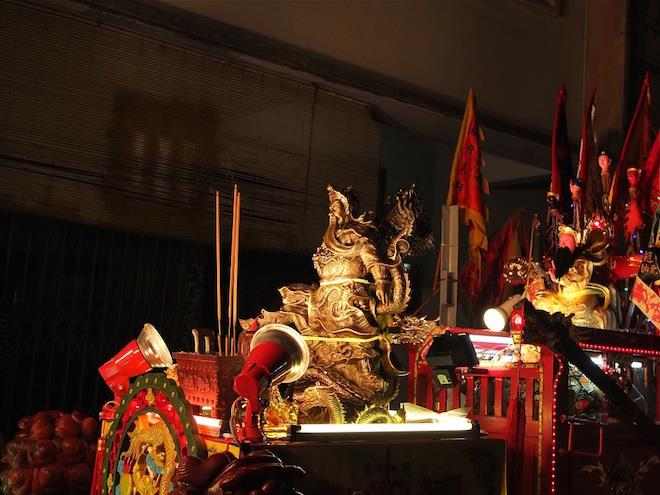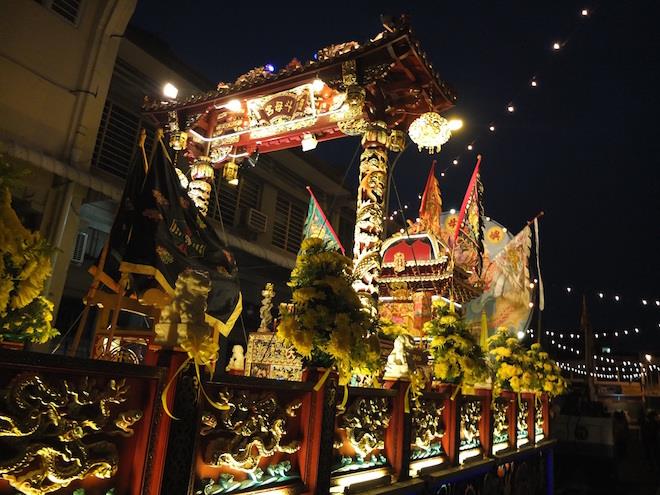PENANG STORIES
Nine Emperor Gods Festival
Observed mainly in the Southeast Asia region, the Nine Emperor Gods Festival is celebrated for nine days during the ninth lunar month of the Chinese calendar. Considered as patrons of wealth and well-being, the Gods are worshipped and welcomed on the first day of the festival before sent ‘home’ with a climactic procession on the ninth day.
Who were the Nine Emperor GodsThese patrons of prosperity and good health, the Nine Emperor Gods, were long ago revered by inhabitants of southern China, an area thick with the practise of ancient rituals of sacred rites at the time. Due to diaspora of the Southern Chinese people to the Southeast Asian region, this belief along with its rituals and celebration were brought to countries such as Malaysia, Myanmar, Singapore and Thailand. Till this day, this Taoist festival is celebrated to honour the gods on a large scale for nine days.
According to believers, the ‘Nine Emperor Gods were the sons who were manifested by Zhou Yu Dou Fu Yuan Jun, also known as Father Emperor and Dou Mu Yuan Jun who was the Mother of the Big Dipper. Both parents were the Registrar of Life and Death’. Formed by nine stars, seven of which are of the Big Dipper, the Nine Emperor Gods are considered high-ranking star lords presiding over the planets’ movements while arranging life and death issues of mere mortals.
Its RitualsAbstaining from meat throughout the nine days is a common, respectful practise by believers. Prayers are incessantly chanted while bells are tinkled constantly at the temples during the festival. It has also been observed that rain always fell during this time. It is perhaps a strong symbolic return of welcome by the Gods who are believed to arrive via sea or river. That was why the procession to welcome the Gods to shore on the first day and send them ‘home’ on the ninth day, started from temple grounds and moved towards any waterway to mark this belief.
This ritual is carried out till today along with lion dance troupes accompanying statues on sedan chairs and a sacred urn. Bearers will dress in white while swinging the sedan chairs as a way to acknowledge the presence of divine forces. All of which add a carnival-like element to the festival, indicating a joyful celebration. These processions are led by temple priests and on the final day of the festival, meat dishes are laid out to mark the end of the vegetarian fast.
A couple of exotic rituals such as fire walking and impaling of the flesh with skewers were practised to show purity as well as sincerity of the believer but today, fire walking is rare if not banned totally due to safety measures. However, piercing of the cheeks with skewers still continues and not unlike those of Hindu religion during Thaipusam, only those of utmost sincere religious intentions are able to carry this out without serious injuries and scarring. This ritual is often carried out after a period of abstinence from meat and prayers instilling unwavering belief that translates into a trance, thus protecting the believer from physical pain and excessive bleeding during this ritual.
Where To See
In Penang, the main temple to witness this fascinating festival is at the Nine Emperor Gods temple or Tow Boo Kong temple at the end of Jalan Raja Uda in Seberang Perai. It is also the largest Buddhist temple in Butterworth. On the island, there is the temple on Gat Lebuh Macallum and the smaller but no less important temple on Burmah Road hold prayer ceremonies daily and a big procession on the last festival day. There will also be Chinese vegetarian dishes sold within the temples’ premises on the day.
Image credit: Leonard Selva & Su Aziz

